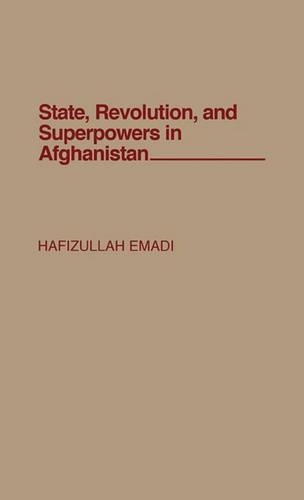
State, Revolution, and Superpowers in Afghanistan
(Hardback)
Publishing Details
State, Revolution, and Superpowers in Afghanistan
By (Author) Hafizullah Emadi
Bloomsbury Publishing PLC
Praeger Publishers Inc
28th February 1990
United States
Classifications
Tertiary Education
Non Fiction
320.9581
Physical Properties
Hardback
173
Width 140mm, Height 210mm
369g
Description
This volume studies the process of nation-state building, its role in modernization and developments in Afghanistan following World War II to the period of Soviet occupation of the country in December 1979, and the struggle of various social strata for social transformation in the country. The book further explores the policies of the two superpowers--the United States and the Soviet Union--and their economic assistance in Afghanistan's modernization projects following World War II. The book offers insight into this superpower struggle, examning how each superpower tries to win Afghanistan to its side by supporting a particular social strata within the state apparatus. Finally, it analyzes how one of the contending superpowers--the Soviet Union, having failed to establish its influence in Afghanistan--decided to intervene in the country's affairs in December 1979. The book also examines the emergence and devlopment of the Islamic movement and the "Jihad" struggle waged against the regime and the Soviet force in Afghanistan. It explores the basis of U.S. policy in aiding and abetting the Pakistan-based Islamic parties and the future of U.S. - Soviet struggle in Afghanistan. Much of the book is based of Afghanistan's primary sources as well as U.S. secret documents seized by the Iranian students during the U.S. hostage crisis in Iran. The book links a survey of the literature to interviews with prominent policymakers who were active in Afghanistan's development strategies. The book should appeal to scholars, and researchers on the Middle East and South Asia, as well as to lay persons interested in a new perspective and interpretation of Afghanistan politics.
Author Bio
HAFIZULLAH EMADI had worked for several years as a writer and reporter for the Kabul Times Daily, as well as for a number of other private newspapers and periodicals in Kabul, Afghanistan. He is the author of several articles and papers.
